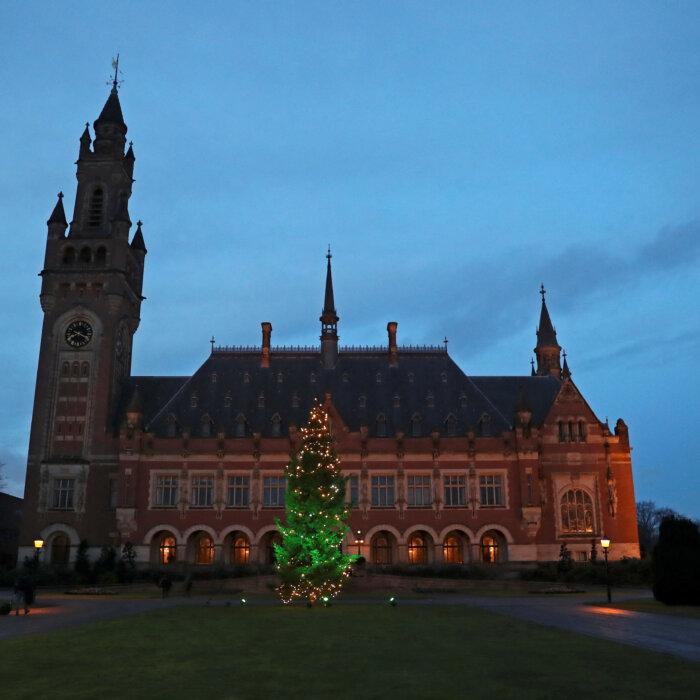The government’s plan to ban public bodies from boycotting Israeli goods has cleared the Commons on Wednesday despite a rebellion by a number of former Tory ministers.
The Economic Activity of Public Bodies (Overseas Matters) Bill passed a third reading in the Commons by 282 votes to 233 and will now go to the Lords.
Eight Conservative MPs voted against the bill along with opposition parties, including Foreign Affairs Committee chair Alicia Kearns; Public Administration and Constitutional Affairs Committee chair William Wragg, and former ministers George Eustice, Kit Malthouse, and Vicky Ford.
If the bill becomes law, it will ban public bodies from boycotting goods and services from any foreign territory over political or moral reasons except those exempted by ministers.
It further prohibits ministers from exempting “Israel, the Occupied Palestinian Territories, or the Occupied Golan Heights.”
The bill was introduced in June last year to fulfil a 2019 manifesto promise to “ban public bodies from imposing their own direct or indirect boycotts, disinvestment or sanctions campaigns against foreign countries.”
It’s aimed at countering the influence of lobby groups such as the Israel-targeting Boycott, Divestment, Sanctions (BDS) movement, which former Home Secretary Dame Priti Patel said is “racist” and “anti-Semitic.”
The manifesto came after Leicester City Council defeated a legal challenge against its boycott of goods from the West Bank in 2018.
Moving the bill in the Commons on Wednesday, the Secretary of State for Levelling Up, Housing and Communities Michael Gove said the bill is “a targeted and proportionate approach to dealing with a unique evil.”
The minister said the BDS movement is “explicitly and regrettably anti-Semitic,” and that there’s “a clear intention in this bill which is to deal specifically with the BDS campaign, and the BDS’s campaign attempt to use local government and other intermediate institutions and their legitimacy to undermine the UK Government’s foreign policy.”
Mr. Gove argued that the Israeli clause does not contravene the UK’s foreign policy or inhibit the government’s ability to take action if it believes there is “activity in the Occupied Palestinian Territories that requires to be called out.”
Occupied Palestinian Territories refers to the Gaza Strip and the West Bank, including East Jerusalem.
Mr. Gove also sought to assure MPs that the clause won’t prevent the UK from imposing travel bans, saying the bill “simply” aims to “prevent public bodies from adopting their own foreign policy.”
In recent weeks, ministers have said they are mulling travel bans against Israeli settlers responsible for violence against Palestinians in the West Bank.
Labour’s Deputy Leader Angela Rayner said the party opposes the targeting of Israel, but believes the bill is “deeply flawed.”
She said the bill would ban public bodies from boycotting a country that uses forced labour, creates a new power for the minister, and is “incompatible with both the government’s own long-standing foreign policy and international law.”
“Explicitly equating Israel with the Occupied Palestinian Territories and the Golan Heights is an unprecedented step. To my knowledge, this wording has never appeared in British statute before, and it seriously undermines our country’s long-standing, consistent and cross-party support for a two-state solution, so I could not be more disappointed,” she said.
Mr. Malthouse also opposed “ the separate identification in the bill of Israel, and its conflation with the occupied territories and the Golan Heights,” saying it contravenes international law and will, therefore, “spend a lot of time in the courts.”
The former minister raised concerns over the impact on free speech and the scope of the bill, saying it will drag in the local government pension fund, universities, and private sector companies that perform a public service of some kind and are contractors to the government.
He also argued that the bill will “play entirely into the hands of the anti-Semites” and feed more conspiracy theories about Israel and the Jewish community.
Supporting the bill, former Attorney General Sir Michael Ellis, who is Jewish, said the legislation “will finally stop public bodies from wrongfully pursuing their own independent foreign policy agenda, which have almost exclusively been the result of divisive, anti-Semitic partisan campaigns pursued by the anti-Semitic BDS movement.”







